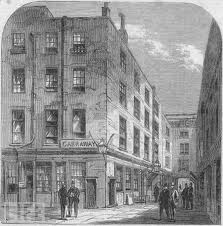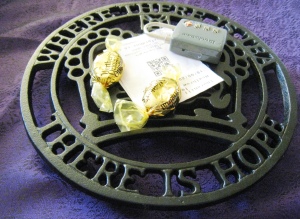
Sir Richard Steele (1672-1729)
A man well-rounded both in physical proportions and intellectual interests, Sir Richard Steele is best remembered today for starting The Spectator with his friend Joseph Addison. One of the first periodicals in England, The Spectator sought ‘to enliven morality with wit, and to temper wit with morality… to bring philosophy out of the closets and libraries, schools and colleges, to dwell in clubs and assemblies, at tea-tables and coffeehouses’. A noble task, and one perhaps easier for him in his day than us in ours by the fact that The Spectator’s circulation of 3,000 reached approximately a tenth of London’s population as each paper was passed from hand to hand–mainly in the rising institution of the coffee house–over the course of the day.
The excerpt below comes at the end of his essay, ‘On Recollections of Childhood; Death of Parents; First Love’. My favorite part, other than the last bit, is the way he manages to convey sincerity rather than euphemism in his use of ‘commended’ as a alternative verb.
From Steele’s ‘On Recollections of Childhood’:

Garraway's Coffee House in Exchange Alley, circa 1800
A large train of disasters were coming on to my memory, when my servant knocked at my closet-door, and interrupted me with a letter, attended with a hamper of wine, of the same sort with that which is to be put to sale on Thursday next, at Garraway’s coffee-house. Upon the receipt of it, I sent for three of my friends. We are so intimate, that we can be company in whatever state of mind we meet, and can entertain each other without expecting always to rejoice. The wine we found to be generous and warming, but with such a heat as moved us rather to be cheerful than frolicksome. It revived the spirits, without firing the blood. We commended it until two of the clock this morning; and having to-day met a little before dinner, we found, that though we drank two bottles a man, we had much more reason to recollect than forget what had passed the night before.
From Sir Richard Steele, ‘On Recollections of Childhood; Death of Parents; First Love’, 1710.












